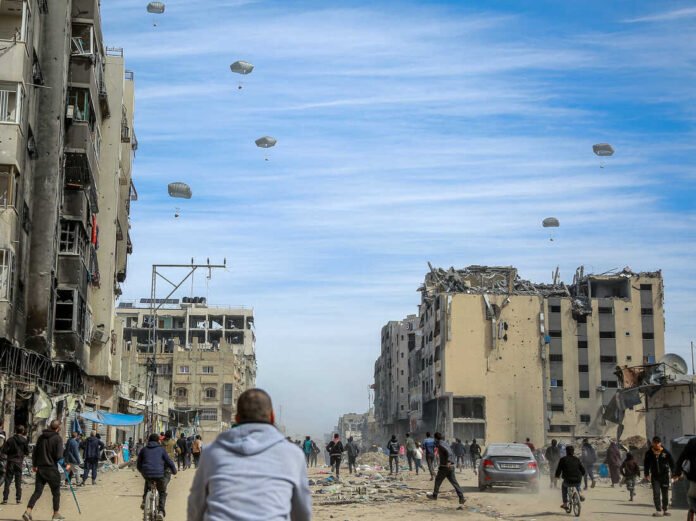Gaza aid delivery efforts continued on Wednesday as the UAE and Jordan conducted a fourth consecutive day of critical airdrops. The latest operation coincided with the arrival of a 58-lorry Emirati convoy carrying additional humanitarian supplies into the war-torn Gaza Strip.
According to official sources, two Royal Jordanian Air Force C-130 aircraft and one Emirati plane participated in the airdrops. These aircraft successfully delivered 16 tonnes of food and infant formula to different locations across Gaza.
Gaza aid delivery operations have now reached a total of approximately 73 tonnes over the past few days. The ongoing missions aim to meet urgent needs amid worsening humanitarian conditions in the enclave.
At the same time, the UAE-supported convoy entered Gaza through designated border crossings. The lorries carried food, medicine, and other relief items to support ongoing distribution programs for displaced and vulnerable families.
Meanwhile, Belgium has announced its participation in an upcoming joint air mission coordinated with Jordan. The move comes as international concern mounts over the deepening crisis inside Gaza.
Belgian defense and foreign ministries confirmed a military aircraft will soon travel to Jordan. The plane will carry medical supplies and food valued at €600,000, roughly $690,000. It will remain on standby to participate in air drop operations when called upon.
Gaza aid delivery remains a growing priority as the health situation continues to deteriorate. Hospitals in the region reported seven additional deaths from starvation and malnutrition within the past 24 hours.
The Gaza Health Ministry stated that a total of 154 people, including 89 children, have died due to hunger-related causes since the conflict began. These figures highlight the urgency of expanding aid access and accelerating response efforts.
Furthermore, the death toll from the wider conflict has now reached at least 60,138 Palestinians. An additional 146,269 people have been wounded during the fighting, according to official health authorities.
As Gaza aid delivery operations intensify, international coordination continues to be vital. Air and land missions aim to bring relief to civilians while agencies work to prevent further escalation of the humanitarian disaster.


